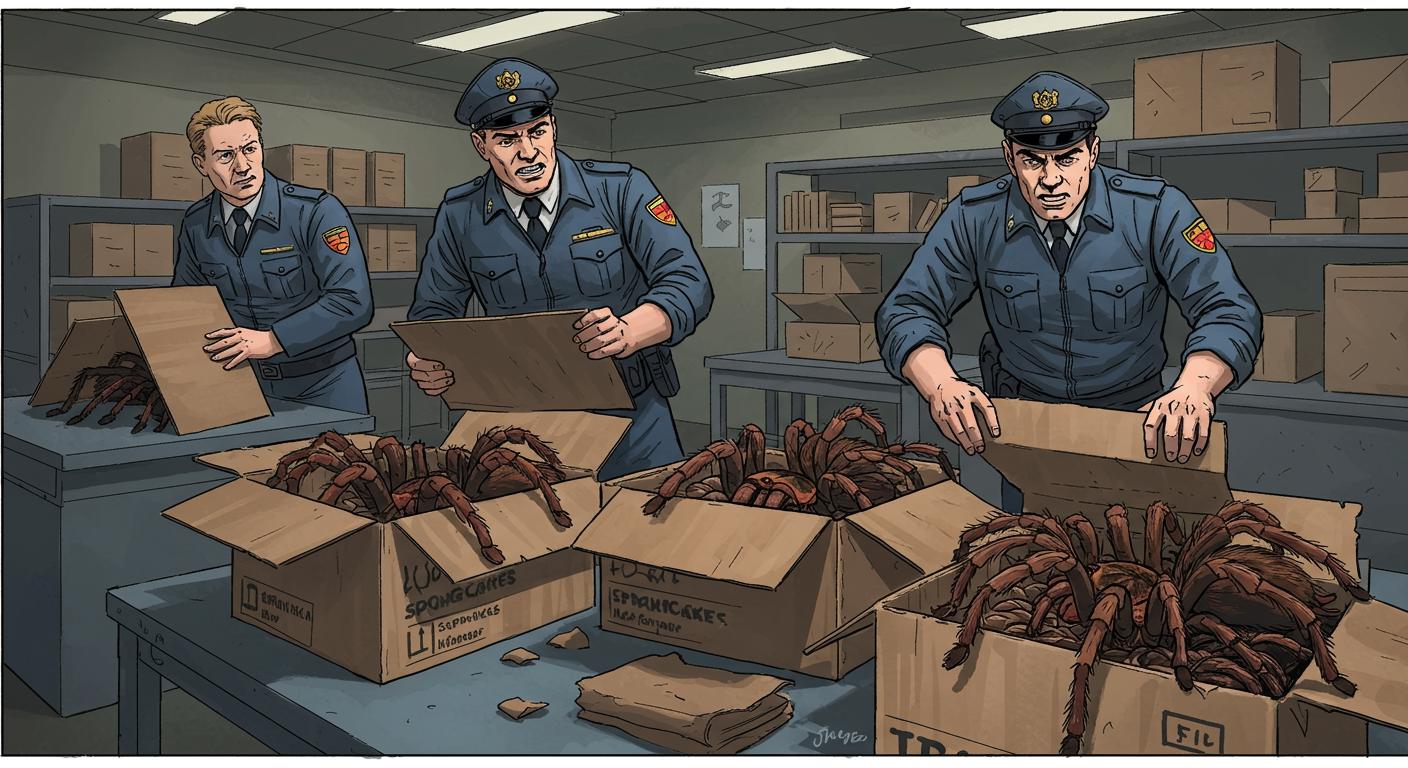There are moments when even lifelong connoisseurs of the bizarre have to pause, put down their coffee, and mumble something along the lines of, “Well, that’s a new one.” This week, thanks to a report from the Associated Press, German customs officials unwittingly provided one of those moments: a startling new contender for worst possible cake filling—1,500 young tarantulas shipped in chocolate spongecake boxes.
When a “Noticeable Smell” Isn’t Chocolate
German customs officers at Cologne Bonn airport were alerted by an unusual, un-cake-like odor from a box labeled as chocolate spongecake, weighing a suspiciously hefty 7 kilograms. AP coverage details how officers investigating the package—recently arrived from Vietnam—found it packed not with sugary layers, but with nearly 1,500 small plastic containers. Their contents: live young tarantulas, each stowed away in its own unaesthetic, spider-sized compartment.
Jens Ahland, spokesperson for the Cologne customs office, explained to AP that even their most experienced staff were left speechless after opening the box—no easy feat in a job known for exposing professionals to the world’s oddest smuggling attempts. The outlet also notes this is far from the average prohibited import, and possibly has set a local benchmark in creative (if offensively creepy) packaging.
A Grim Fate for Cake-Hiding Crawlers
As highlighted by the Associated Press, not all the arachnid travelers survived the ordeal, a situation officials suspect may breach Germany’s animal-welfare laws. Survivors were delivered into the care of an expert handler, providing—if not a happy ending—a potentially less traumatic chapter for those few who made it past security.
Authorities confirmed to AP that criminal proceedings were initiated against the intended recipient in the Sauerland region, tied not just to import duties and customs paperwork, but also to possible animal-welfare violations. In a detail described in AP’s report, officials have yet to finalize a value for the shipment, perhaps suggesting the going rate for spongecake-disguised spiders is not exactly standard customs fare.
The Enduring Peril of the Mystery Package
Reflecting on the incident, Ahland told the Associated Press that his team is regularly surprised by package contents, but this spider-stuffed cake box left a lasting impression—an “extraordinary seizure,” albeit one he described as sad, given profits were prioritized so clumsily above animal safety. The office only made images of the discovery public three weeks after the initial find, perhaps allowing everyone involved a moment to process what will likely become an enduring “you’ll never believe what I saw at work” anecdote.
With this latest bust, the universe of “unexpected things inside baked goods” seems to have reached a new milestone. Who knows what future shipments will bring—are we entering a golden era of anti-gourmet surprises, or is this just a fluke on the great conveyor belt of global oddities? Either way, the moral seems clear: next time you’re offered cake from a suspiciously heavy box, perhaps take a gentle sniff before digging in.







